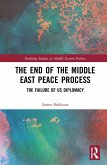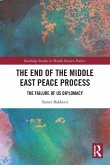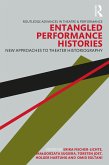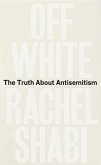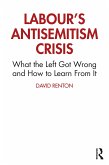This edited volume offers a new critical approach to the study of Zionist history and Israeli-Palestinian relations, based on the encounter between history and anthropology.
Informed by the anthropological method of setting large questions to intimate settings, the book examines processes of Zionist colonization, nation-building and Palestinian dispossession by focusing on encounters between members of different national, religious and ethnic groups "from below"-through paying close attention to life stories and reconstructing everyday practices and micro-histories of places and communities. Thus, it tells a complex story in which the practices of historical actors are not simply reducible to a single underlying logic of colonization, even as they participate in the production and reproduction of colonial structures. This approach effectively undermines the prevailing tendency to study national communities in isolation, projecting onto the past an essentialist and rigid separation. Rather than assuming two clearly bounded and monolithic national groups, caught from the start in perpetual conflict, this volume probes their historical production through their evolving relationships, and their varied and shifting political, social, economic and cultural manifestations.
The book will be of interest to students and researchers in an array of fields, including the history of Israeli-Palestinian relations, anthropological perspectives on settler colonialism, and Zionism.
Informed by the anthropological method of setting large questions to intimate settings, the book examines processes of Zionist colonization, nation-building and Palestinian dispossession by focusing on encounters between members of different national, religious and ethnic groups "from below"-through paying close attention to life stories and reconstructing everyday practices and micro-histories of places and communities. Thus, it tells a complex story in which the practices of historical actors are not simply reducible to a single underlying logic of colonization, even as they participate in the production and reproduction of colonial structures. This approach effectively undermines the prevailing tendency to study national communities in isolation, projecting onto the past an essentialist and rigid separation. Rather than assuming two clearly bounded and monolithic national groups, caught from the start in perpetual conflict, this volume probes their historical production through their evolving relationships, and their varied and shifting political, social, economic and cultural manifestations.
The book will be of interest to students and researchers in an array of fields, including the history of Israeli-Palestinian relations, anthropological perspectives on settler colonialism, and Zionism.
"Through close examinations of mundane moments of leisure and work, oppression and resistance, silencing and resistance, this volume carves out a space between history and anthropology. It is a fascinating collection of empirical studies that makes an excellent contribution to shaping the emerging field of integrated and relational Palestine/Israel Studies."
Tamir Sorek, Liberal Arts Professor of Middle East History, Penn State University, United States
"Entangled Histories in Palestine/Israel: Historical and Anthropological Perspectives is a truly original collection of critical research exploring historical, political and social events, and places and moments in Palestine/Israel. The book presents a diversity of academic disciplines as well as rich theoretical discussion and empirical evidence. This book is a foundational, and most updated, critical study on Palestine/Israel, and will certainly be a key source of knowledge."
Haim Yacobi, Professor of Development Planning, The Bartlett Development Planning Unit, UCL, United Kingdom
"In integrating Arab and Jewish narrative perspectives this book provides a long overdue treatment of national and ethnic splits in Palestine/Israel in novel ways. It approaches the history of Palestine and Israel from a critical perspective, mixing anthropological and from-below-historical aspects largely marginalized from the historiography of the region. In bringing forth the experiences, perceptions and memories of ordinary people in national conflict, and emphasizing the role of gender in the creation of a common Arab-Jewish perspective on the quotidian experience of politics, the book widens the notion of the political."
David De Vries, Department of Labor Studies, Tel Aviv University, Israel
Tamir Sorek, Liberal Arts Professor of Middle East History, Penn State University, United States
"Entangled Histories in Palestine/Israel: Historical and Anthropological Perspectives is a truly original collection of critical research exploring historical, political and social events, and places and moments in Palestine/Israel. The book presents a diversity of academic disciplines as well as rich theoretical discussion and empirical evidence. This book is a foundational, and most updated, critical study on Palestine/Israel, and will certainly be a key source of knowledge."
Haim Yacobi, Professor of Development Planning, The Bartlett Development Planning Unit, UCL, United Kingdom
"In integrating Arab and Jewish narrative perspectives this book provides a long overdue treatment of national and ethnic splits in Palestine/Israel in novel ways. It approaches the history of Palestine and Israel from a critical perspective, mixing anthropological and from-below-historical aspects largely marginalized from the historiography of the region. In bringing forth the experiences, perceptions and memories of ordinary people in national conflict, and emphasizing the role of gender in the creation of a common Arab-Jewish perspective on the quotidian experience of politics, the book widens the notion of the political."
David De Vries, Department of Labor Studies, Tel Aviv University, Israel


